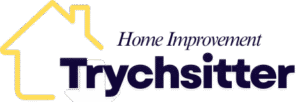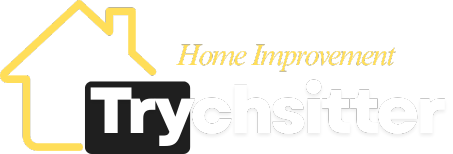
In today’s fast-paced world, being a busy professional often means balancing deadlines, meetings, and endless to-do lists. Unfortunately, this lifestyle can easily push health and wellness to the background. Skipping meals, sitting all day, or sacrificing sleep may seem manageable in the short term, but they eventually lead to burnout, fatigue, and health problems.
The good news? You don’t need to overhaul your entire life to live healthier. By adding small but consistent habits to your daily routine, you can boost your energy, focus, and overall well-being — even with a packed schedule. Let’s explore practical and easy healthy living routines for busy professionals that actually work.
1. Start Your Day With Intention
A healthy day begins the moment you wake up. Instead of rushing to check emails or social media, take the first few minutes to ground yourself.
Try these simple morning habits:
- Hydrate first: Drink a full glass of water as soon as you wake up. It rehydrates your body after hours of sleep and kick-starts your metabolism.
- Stretch or move: A quick 5–10-minute stretch or yoga session can loosen your muscles and prepare your body for the day.
- Mindful moment: Practice gratitude, deep breathing, or a short meditation to set a calm, positive tone.
Even if your mornings are hectic, giving yourself a short moment of peace can dramatically improve your mental clarity and stress levels.
2. Eat Smart, Not Complicated
Many professionals skip breakfast or grab fast food for lunch simply because they’re pressed for time. But with a little planning, healthy eating becomes effortless.
Tips for busy professionals:
- Plan your meals ahead: Spend a few minutes each weekend prepping meals or at least listing healthy options for the week.
- Keep healthy snacks nearby: Store nuts, fruit, or protein bars in your desk or bag to avoid vending machine temptations.
- Don’t skip breakfast: Choose quick, nutritious options like smoothies, oatmeal, or eggs.
- Stay hydrated: Keep a water bottle with you. Proper hydration improves concentration and energy levels.
Remember: eating well isn’t about restriction — it’s about giving your body the fuel it needs to perform at its best.
3. Move Whenever You Can
Sitting for long hours can take a toll on your posture, circulation, and overall health. But even in a desk job, movement is possible.
Simple ways to stay active:
- Take walking meetings: Instead of sitting in a conference room, suggest walking while you talk.
- Use short breaks wisely: Get up every hour, stretch, or walk around your office.
- Take the stairs: Skip the elevator whenever possible — small steps add up!
- Exercise in short bursts: Even 10–15 minutes of exercise during lunch or after work is beneficial.
If time is tight, focus on high-intensity interval training (HIIT) — short, powerful workouts that can burn calories and build strength in minimal time.
4. Prioritize Quality Sleep
Sleep is often the first thing professionals sacrifice. Yet, good sleep is essential for productivity, creativity, and emotional balance. Without it, your body can’t recover properly.
To improve your sleep:
- Set a bedtime routine: Try to go to bed and wake up at the same time every day.
- Avoid screens before bed: Blue light from phones and laptops can interfere with melatonin production.
- Create a sleep-friendly environment: Keep your room dark, quiet, and cool.
- Avoid caffeine late in the day: Stick to morning coffee and choose herbal tea later.
A well-rested mind performs better and helps you make sharper decisions throughout the day.
5. Manage Stress Effectively
Stress is unavoidable for most professionals, but how you manage it makes all the difference. Chronic stress can lead to burnout, anxiety, and even physical illness.
Healthy stress-relief techniques:
- Deep breathing: Just a few minutes of slow, deep breaths can calm your nervous system.
- Meditation or mindfulness: Apps like Headspace or Calm can guide short, effective sessions.
- Journaling: Write down thoughts or things you’re grateful for to shift focus from stress to positivity.
- Take short breaks: Step away from your desk to reset your mind.
Even small actions, like enjoying a quiet cup of tea or spending time in nature, can help restore mental balance.
6. Build Strong Work-Life Boundaries
One of the biggest challenges for busy professionals is separating work from personal life. With remote work and constant connectivity, the line between the two often blurs.
Here’s how to regain control:
- Set digital boundaries: Avoid checking work emails after a certain hour.
- Create a shutdown ritual: End your workday with a simple routine — such as making a to-do list for tomorrow or closing your laptop and walking away.
- Schedule “you time”: Treat self-care, family, and hobbies as appointments that can’t be skipped.
Work-life balance doesn’t mean equal time — it means making space for things that keep you mentally and emotionally fulfilled.
7. Nurture Your Mental and Emotional Health
Mental well-being is just as important as physical health. Yet, it’s often neglected when life gets busy. Incorporate simple habits that keep your mind strong and positive.
Try these practices:
- Stay connected: Spend time with supportive friends or colleagues.
- Practice self-compassion: Don’t be too hard on yourself when things don’t go perfectly.
- Learn something new: Reading, hobbies, or skill development can keep your mind engaged.
- Seek help when needed: Talking to a therapist or counselor is a sign of strength, not weakness.
Emotional resilience helps you handle professional challenges with greater ease and confidence.
8. Use Technology Wisely
While technology can be distracting, it can also make healthy living easier. Many apps help with nutrition tracking, meditation, fitness, and time management.
Helpful tools:
- MyFitnessPal – track your meals and calories
- Headspace or Calm – guided meditation
- Google Calendar – schedule self-care time
- Fitbit or Apple Health – monitor steps and sleep
Use these tools to keep yourself accountable and aware of your health goals.
9. Stay Consistent — Not Perfect
The biggest secret to healthy living is consistency over perfection. You don’t need to do everything perfectly every day — what matters is showing up regularly.
Missed your morning workout? Take a walk at lunch.
Forgot your water bottle? Drink extra when you get home.
Every small effort counts. Over time, these habits will become part of your daily rhythm and transform your energy, focus, and well-being.
Conclusion
Healthy living doesn’t require hours in the gym or elaborate meal plans — it’s about making mindful choices within your existing routine. By focusing on hydration, movement, nutrition, sleep, and stress management, you can create a lifestyle that supports both your professional success and personal happiness.
Remember, your health is your greatest asset. When you take care of yourself, you’ll find that your productivity, creativity, and satisfaction at work naturally improve. Start small today — your future self will thank you.
FAQs About Healthy Living Routines for Busy Professionals
1. How can I stay healthy if I work long hours?
Focus on small habits: drink enough water, take short walking breaks, eat balanced meals, and get enough sleep. Even small lifestyle adjustments make a big impact over time.
2. What are the best quick exercises for busy people?
Try high-intensity workouts, brisk walking, or short strength sessions. Even a 10–15-minute routine can improve fitness and energy levels.
3. How can I reduce stress during a busy workday?
Take deep breaths, stretch at your desk, listen to calming music, or step outside for fresh air. Regular mindfulness breaks help lower stress.
4. What’s a healthy snack I can eat at my desk?
Go for nuts, fruit, yogurt, boiled eggs, or veggie sticks. These snacks keep you full and energized without sugar crashes.
5. How do I make healthy habits stick?
Start small and be consistent. Pick one or two habits, stick with them daily, and add more as they become natural parts of your routine.















